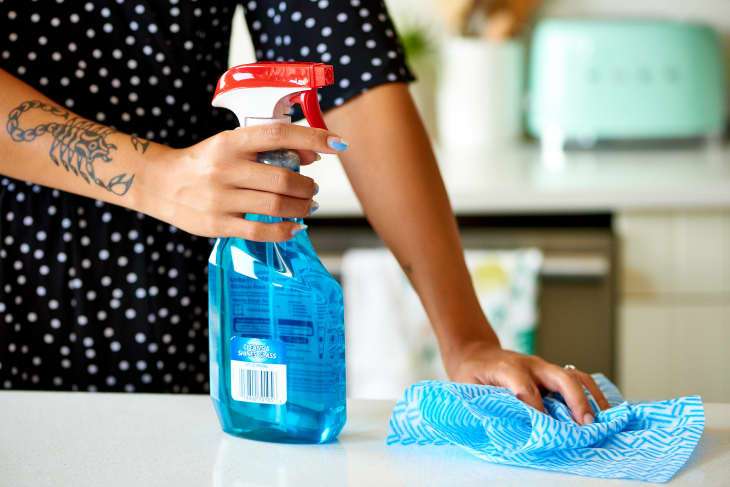Using This Common Cleaner on Your Stovetop Could Cause Major Damage and Void the Warranty
Posted in Angelcityfurniture
Cleaning a home is something you have to learn how to do. And part of that learning involves correcting your routine when you realize that you’re doing something wrong.
This was the case for me recently when I learned you shouldn’t use glass cleaner to clean a glass stovetop. It seemed counterintuitive, since you want your glass cooktop to be clean and streak-free and Windex is a glass cleaner.
I even recommended it in a recent article about alternative uses for cleaning items we already have at home . The concept is money-saving and simplifying; using tools and products in multiple ways cuts down on items we need to store and replenish. In addition to suggesting the use of Magic Erasers for removing coffee stains from mugs and dish soap to clean the bathtubs (two excellent tips!), I included some alternative uses for Windex, including clean glass stovetops (we’ve since updated the article to correct that!).

Shortly after the piece was published, I received a message on Instagram from @lalalime . Here’s what she said:
“Hi Shifrah, just read your article at Kitchn about cleaning. Good valuable info there, thank you for this. I clean for work so appreciate new insight always. However, Windex should not be used on glass cooktops (Google it — cooktop manufacturer sites) as Windex can make it easy to scratch the cooktop somehow? It would be awful for this to happen and possibly null a warranty if done. Thought I’d just mention this.”
It’s true. Using Windex, which contains ammonia, can cause damage to glass cooktops that manufacturers won’t cover. Ammonia can etch the surface of the cooktop. Furthermore, if you forget to wipe it dry and turn on a burner, you release ammonia gas into the air . Yikes. While I do my utmost to provide researched, relevant, helpful information to the readers I’m honored to serve, I don’t always get it exactly right.
I looked up the warranties and related care guides for two popular oven/stove brands, GE and Whirlpool, and I found out that, indeed, neither of them will cover damage that might occur if you use ammonia, the active ingredient in Windex, on your glass stovetop .
The GE Electric Cooktop Warranty states that it will not cover “damage to the glass cooktop caused by use of cleaners other than the recommended cleaning creams and pads.” According to GE’s Glass Cooktop Cleaning Instructions , the company only recommends CeramaBryte brand ceramic cooktop cleaners and either CeramaBryte cleaning pads or paper towels.
Similarly, Whirlpool will not pay for repairs to “ceramic glass cooktop if it has not been cared for as recommended in the Use and Care Guide.” The Owner’s Manual states explicitly, “Do not use steel wool, abrasive powder cleansers, chlorine bleach, rust remover or ammonia because damage may occur.”
When it comes to cleaning your glass stove top, stick to more mild cleaners like vinegar and baking soda, or to cleaners specifically made for glass stove tops. And when stronger cleaning is necessary, a razor blade scraper , rather than harsh cleansers and scrubbers, is best.